Pulitzer Siblings: Jacob, Morris, Samuel, & Emanuel
Simon Pulitzer and his wife, the former Clara Klingsberg, settled in White Castle, Louisiana, where he owned a store and they started their family of twelve children, one of whom died as a baby. As Samuel, the second youngest boy in the family, recounted in his 1989 memoir, Simon’s lucrative but brief venture into slot machines abruptly ended in 1909 when the Louisiana legislature prohibited playing or owning the popular gaming devices. By 1912, Simon lost his store, his slots, and his livelihood. According to Sam, Simon feigned his death by suicide, apparently believing the Home would admit Samuel and three of his brothers (Morris, Emanuel, and Jacob) only if at least one of their parents had died. The Home’s records, however, later note only that Simon “had returned to the city” and for that reason the board discontinued Clara’s stipend to support her and her seven other children.
By 1918, all four Pulitzer boys returned to their parents, who had relocated to New Orleans and had regained financial stability. While in the Home, Jacob (“Jack”) served as an officer in the Golden City Brotherhood, earning praise as “a very dependable boy.” Sam, later described chafing under the regimentation of the Home’s morning inspections but enjoying opportunities such as playing the piccolo in Mardi Gras parades and attending Newman School. For years after leaving the Home, the Pulitzer boys returned on Sundays to play baseball against the Home’s team, noting with good humored sarcasm in a 1925 congratulatory letter that Superintendent Leon Volmer could credit his winning games to “the cooperation of your wonderful umpires and the very ‘rotten’ ball you rang in on us.”
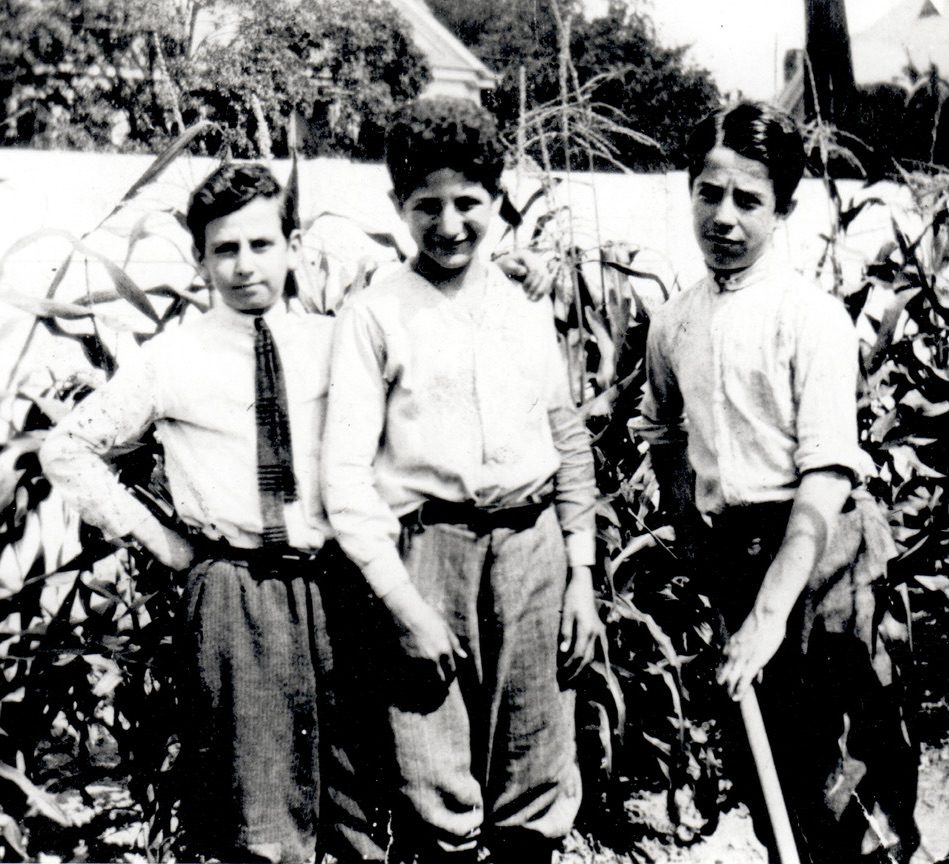
Jacob “Jack” Pulitzer, left, with two unidentified boys. The photo appears to have been taken either at the Home or at Newman School, both of which maintained vegetable gardens during Jack’s time in the Home. Photo courtesy of Clara Jean Pulitzer Berry, Jack’s daughter.
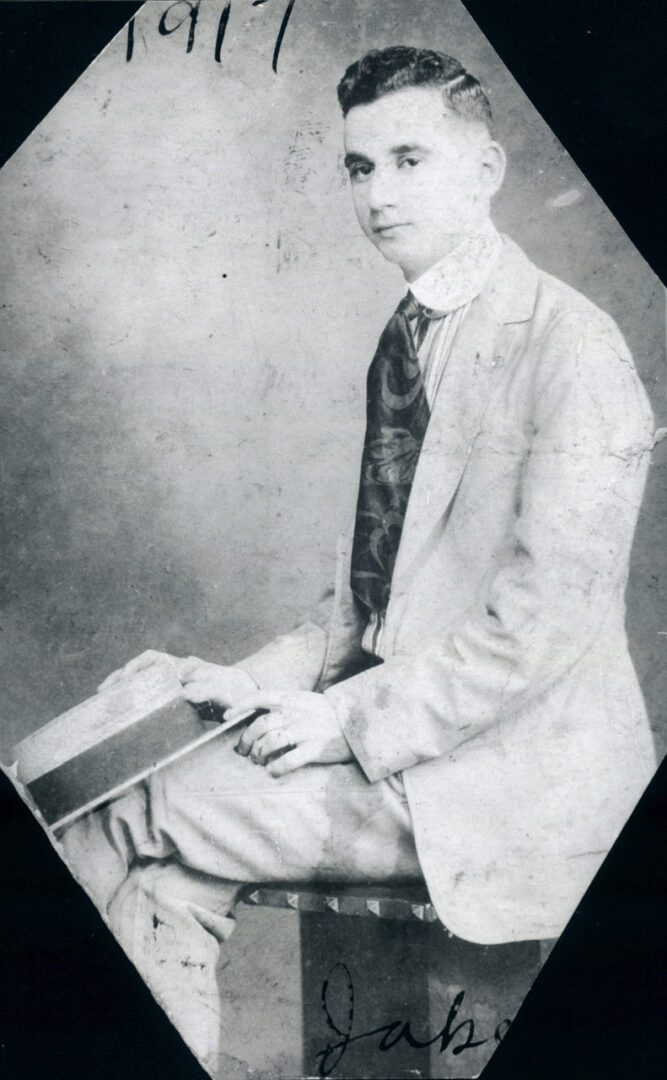
Jack Pulitzer, 1917. Photo courtesy of Clara Jean Pulitzer Berry, Jack’s daughter.
The Pulitzer boys demonstrated a keen entrepreneurial spirit. Jack and Morris went into business as “Jack M. Pulitzer and Brother” supplying retailers with a complete line of paper goods, novelties, toys, school supplies, and carnival throws. A March 1936 ad noted that Easter customers could find “the best goods at the best price,” including “everything but carrots for the rabbits.” Morris served as the company’s traveling representative while Jack welcomed buyers onsite. After Jack died in 1979, Morris continued the business, retiring several years before his death in 1999.
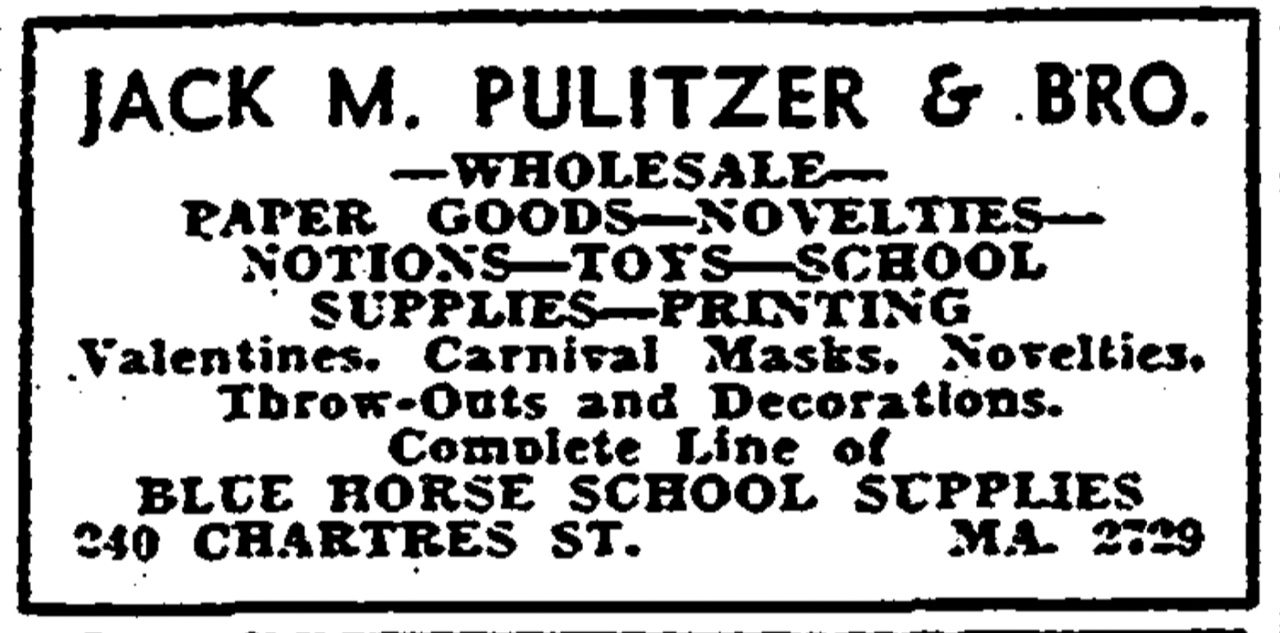
Ad for Jack M. Pulitzer & Bro., New Orleans Item, January 29, 1936.
After leaving the Home, Sam and Emanuel turned their talents to men’s apparel. In 1925, they founded Pulitzer Bros. Men’s Neckwear Novelties, traveling back roads from Texas to Alabama to sell their wares. When they serendipitously discovered that a wrinkle-resistant suit fabric made in Wembley, England could be made into ties, the brothers launched the Wembley Tie Company. Over the years, they purchased men’s accessory companies which they amassed into the Wemco Corporation — which was reported to be “the world’s largest neckwear company.” Emanuel, who served as the company’s executive vice-president, died in 1967. Sam, Wemco’s CEO, died in 1989.
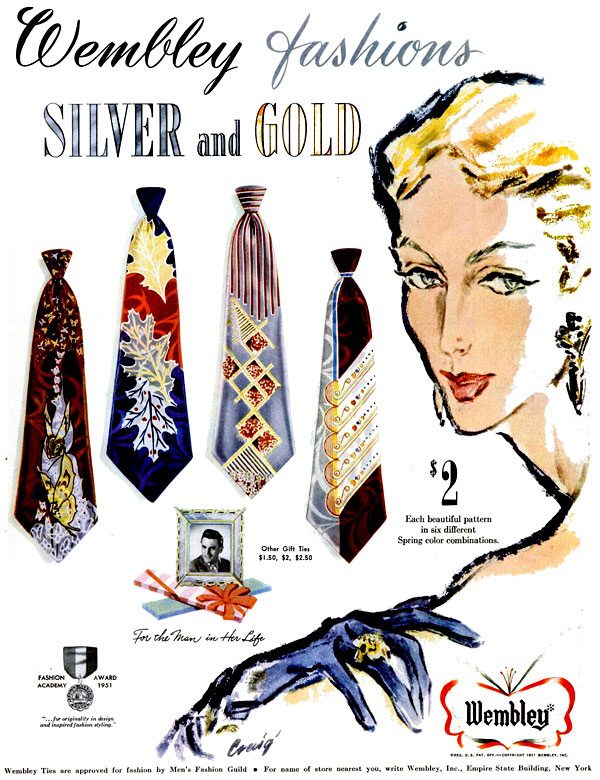
Ad for Wembley Ties, 1951.

Emanuel S. Pulitzer, unattributed photo from obituary, New Orleans States- Item, Sept. 11, 1967.
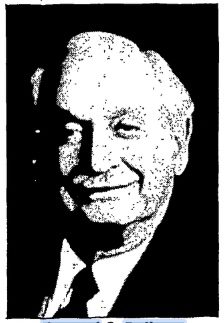
Samuel C. Pulitzer, unattributed photo from obituary, Times-Picayune, Oct. 21, 1989.
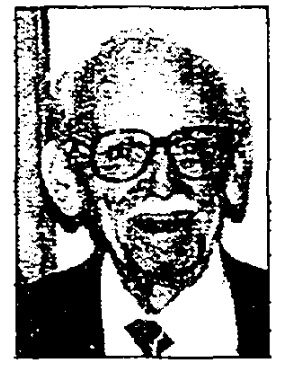
Morris H. Pulitzer, unattributed photo from obituary, Times-Picayune, Aug. 2, 1999.
The Pulitzer brothers married and raised families in New Orleans. Sam married Sylvia Copeland, Morris married Beulah Lipkis, Jack married Lillian Sabludowsky, and Emanuel married Lillian Hofstetter, who lived in the Home from 1927 to 1938.
In Sam's Own Words
In 1989, Sam Pulitzer published his memoir, Dreams Can Come True: The Inspiring Story of Sam C. Pulitzer, Co-Founder of Wemco, Inc., the World’s Largest Neckwear Company. In the first two chapters, Sam describes his time in the Jewish Orphans’ Home.
